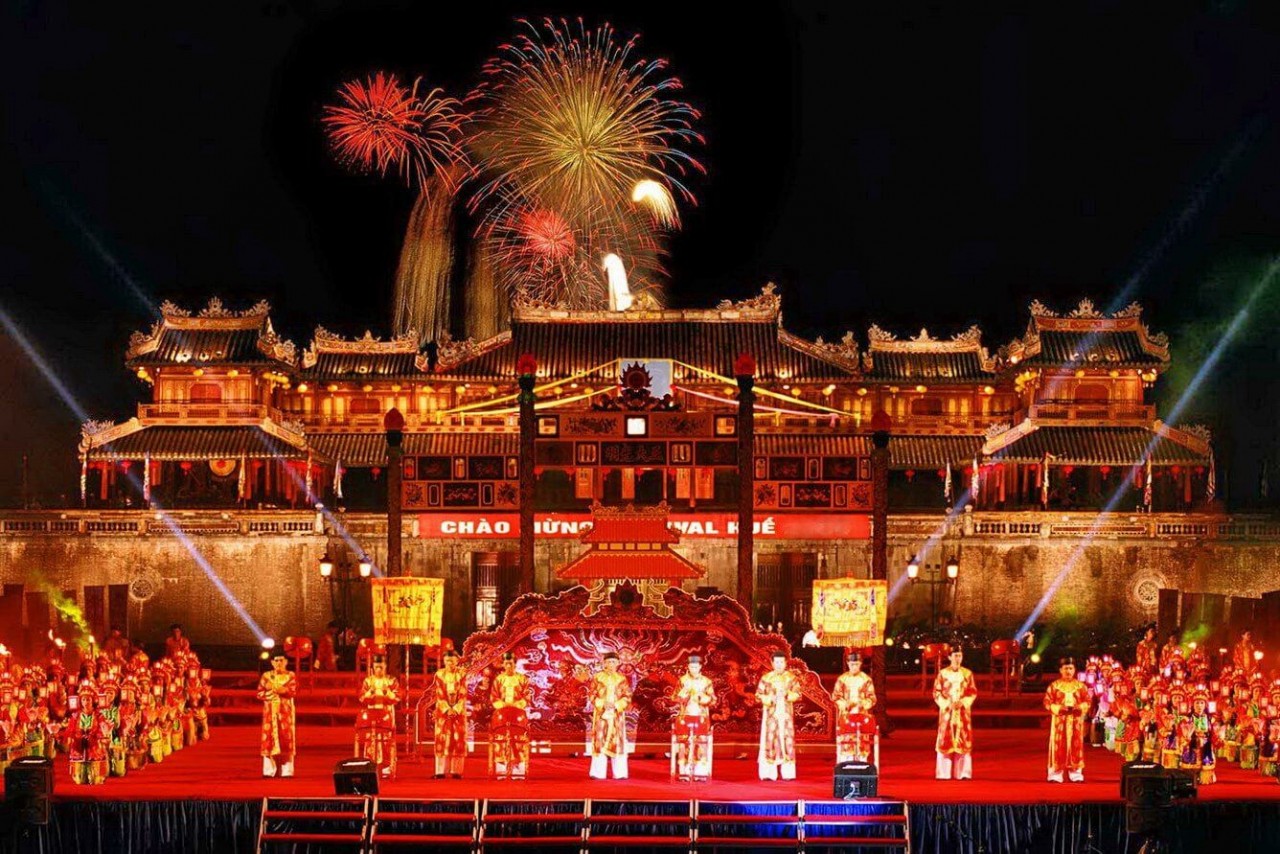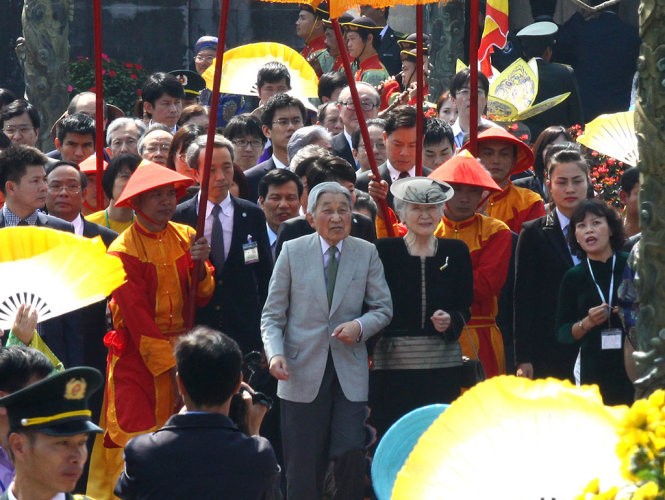
20-year journey of world cultural heritage of Hue Royal Court Music
Latest
 |
| Recognized by UNESCO as a world cultural heritage in 2003, Hue Royal Court Music has become a living testament to the beauty of Vietnamese cultural tradition. (Source: MIA.vn) |
The soul of national culture
Hue royal court music appeared in the early years of the Ly Dynasty (1010-1225) and was performed in royal ceremonies such as Dai Trieu (Court Meeting), Thuong Trieu (King's meeting), Te Giao (Heaven Worship), Te Mieu (Royal Worship Temple), etc. But it was not until the Nguyen Dynasty (1802-1945), especially since the first half of the 19th century, this type of music developed indeed in nowaday form.
At this time, when establishing his dynasty in the South of Vietnam, King Gia Long's Court soon learned to use art to take care of the spiritual life. This was also the time when royal court music was closely associated with Hue Royal Court and developed according to the monarchy's standards.
The reason why Hue Royal Court music is considered a symbol of the prosperity of feudal dynasties is because the lyrics, elegant singing, and noble performance all portray the ceremony’s solemnity, as well as the grandeur of court nobility.
After Vietnam’s last feudal dynasty officially ended in 1945, Hue Royal Court music faced the risk of being faded away. However, our people, along with the international community, have constantly made efforts to preserve the cultural beauty of Hue.
Thereby, despite the passing years with many ups and downs, Hue Royal Court music is still there, intact with all the uniqueness, elegance and manners as in the first days.
Reaching international level
On November 7 2003, UNESCO officially honored Hue Royal Court music as a Masterpiece of the Intangible and Oral Cultural Heritage of Humanity. This is also the first Vietnamese intangible heritage to be recognized worldwide.
Unlike Ca tru, which arose from the folk and then entered the royal court, Hue Royal Court music has the opposite process of formation and development. Besides, it is considered by UNESCO the only kind of music reaching national stature among ancient music genres. This is not only a great honor for the Vietnamese people, but also opens up bright prospect for the tourism sector of Hue ancient city.
Not only has it won recognition from international organizations, Hue Royal Court music has also been introduced to the public in many countries throughout Vietnamese artists’ tours, thereby drawing people’s attention around the world towards the beauty of Vietnamese cultural heritage.
In 1995, musician Ton That Tiet led Phu Xuan Club and Hanoi Ca Tru group to perform for the first time in France and Switzerland at the invitation of the French World Cultural House. In 2004, at the invitation of UNESCO, Vietnamese troupe began a 2-week tour in Montreuil, Arras, Lyon, Marseille (France), Munich, Aachen (Germany) and Brussels (Belgium).
The troupe also had a performance at UNESCO headquarters in Paris. On this occasion, UNESCO awarded Vietnamese representative a certificate of Hue Royal Court music as an intangible cultural heritage.
In addition, Hue Royal Court music is also an important cultural diplomatic bridge, integrated within the framework of high-level delegation exchanges of Vietnam with other countries. Particularly, Hue Royal Court music had the honor to perform two times for the Japanese Emperor.
The first performance took place in 2007 during the visit of President Nguyen Minh Triet's delegation to Japan, when the Hue Royal Traditional Arts Theater was invited to the Japanese Imperial Palace to perform for Emperor Akihito. After the performance, the Emperor personally shook hands with each musician and said thank you.
In 2017, within the framework of the state visit to Vietnam by Emperor Akihito and Empress Michiko, the Japanese Emperor visited Hue ancient capital and enjoyed royal court music for the second time.
 |
| Within the framework of the state visit to Vietnam in 2017, Emperor Akihito and Empress Michiko visited Hue ancient city and enjoyed royal court music for the second time. (Source: Tuoi Tre Newspaper) |
Memorable milestone
The year 2023 marks the 20th anniversary of Hue Royal Court music being recognized by UNESCO as an intangible cultural heritage. Therefore, Thua Thien Hue organized Hue Festival for 3 days (from June 16-18). Also on this occasion, Hue Heritage Conservation Fund was launched to preserve, promote local heritage and culture according to the general guideline of the Party and State.
According to Director of the Hue Royal Traditional Arts Theater, People's Artist Bach Hac, over the past time, the theater has attached great importance to research and kept a data system about royal court music and arts so that future generations don't need to spend much effort to research.
The Theater always strives to preserve its original classic performances, which are symbols of Hue Royal Court music, namely such as Tam Luan Cuu Chuan, 10 Ban Ngu, Phu Luc Nhiem, Nam Ai Nam Bang. Royal Court music is also the key attracting tourists to visit and learn about Hue culture.
Discussing about preservation and promotion for the beauty of Hue Royal Court music in the coming time, Mr. Phan Thanh Hai, Director of the Department of Culture and Sports of Thua Thien Hue province emphasized that we are not only interested in investing in performance environment, but also need to pay attention to training, in order to create a team of successors and improve the artist’s ability so that they can reach the level that our ancestors once had.
Ministries, departments need to promote mechanisms, policies to foster talent and enhance international cooperation to bring Hue Royal Court music to the world level and grasp opportunities to perform in many countries.
It can be said that 20-year journey of Hue Royal Court music as a world cultural heritage is a great pride of Vietnamese people and our expatriates, and is a vivid demonstration of Vietnamese Communist Party’s reasonable guideline: Culture is the spiritual foundation of society, a goal, an internal strength and an important driving force for rapid and sustainable development of our country.

















